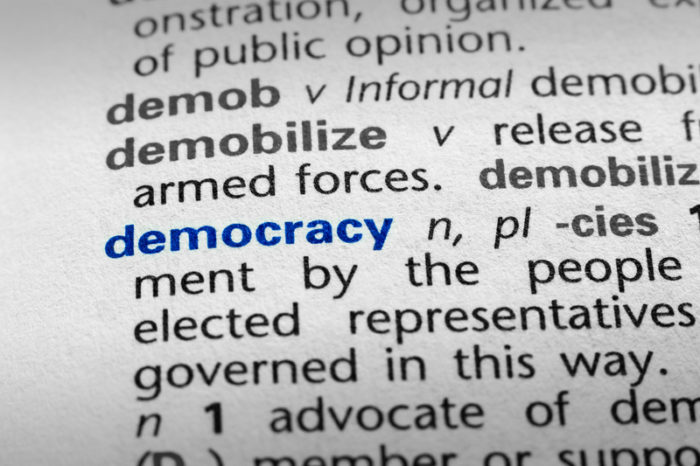
The burning question now is whether US democracy and the world can withstand former President Donald Trump’s obfuscation, incoherence and rage.
Stormy electoral conflicts loom between him and Joe Biden in the November 2024 presidential elections alongside ferocious battles with American prosecutors in criminal trials next year.
These are early days but the pointers so far suggest that the political and legal fighting over Trump is changing the calculations of all other nations, whether or not US allies. Each is figuring out how to put its own people first in relations with a politically messy America.
For many outsiders, including treaty allies in Europe, the Far East and Indo-Pacific, it is deeply disconcerting to witness the Republican frontrunner encaged in grievous criminal charges while Americans tear themselves apart in an imperiled democracy.
They expect the US will be plunged for the next 15 months in unprecedented political infighting. Even if Trump is thwarted, a new Republican President elected in 2028 could wreak vengeance upon those who kneecapped him.
Seen from afar, the criminal charges to which Trump pleaded “not guilty” on Thursday seem difficult to prove to a jury beyond reasonable doubt because prosecutors will have to plumb his mind’s convolutions to prove the constancy of his intent to deceive.
If Trump loses his legal battles, his supporters, who could be 35%-40% of the electorate, will not suddenly bend the knee or disappear. Many may feel still more aggrieved.
If Trump’s criminal trials end in hung juries, his opponents may struggle with blocking his triumphalism while his supporters may become more insufferable.
Unfortunately, this is happening against a backdrop of exceptional international turmoil. The US seems to think that equipping Ukraine with ever better weapons, ammunition and training will empower Kyiv to hurt Russia’s Vladimir Putin grievously enough to retreat from all Ukrainian territory including Crimea.
Yet, current signs are that the war is settling into a long phase of attrition and could continue for years if not decades, placing unbearable financial burdens on its American and European backers.
At the same time, Niger, where the US has more than 1,000 soldiers and is building a regional base for drone warfare against terrorists, has fallen to a sudden military coup. Ostracised by US and several Europeans, its new junta is reported to be discussing armed support from the Wagner group of Russian mercenaries.
ECOWAS, an economic alliance of West African countries currently led by Nigeria, has imposed economic sanctions and threatened use of force to overturn the coup. Military dictators in neighbouring Mali and Burkina Faso, which have agreements with Wagner, have threatened to treat armed intervention against Niger as a declaration of war against them. Military-ruled Guinea would also side with Niger.
The emerging scenario is one of war among West African countries at a time when many, including Chad, Tanzania, Sudan, South Sudan, Ethiopia, Guinea, Mali, Burkina Faso and Niger, are infested with Islamic State and Al Qaeda terrorists eager to use wars to possess entire countries.
The Biden administration is at a loss of how to manage all of this. Its rivals, China and Russia, are actively meddling in the region against American interests.
The Middle East is not on the edge of new wars but the situation remains antagonistic to US interests in Syria, Iran, Libya and Afghanistan. Washington’s influence over Saudi Arabia, the United Arab Emirates and Qatar is no longer as tight as it used to be.
Turkey also seems to be less open to US influence although it remains a vital member of NATO since it controls entrance and exit from the Black Sea where the Ukraine war is raging.
US relations with China are so bad that Beijing is avoiding serious discussion on any subject although it remains polite. Tensions over Taiwan have become so acute that long-time US allies, Japan and South Korea, are upgrading their own military strength to protect their people in case of a China-US war.
India, which is rapidly tightening relations with the United States, is caught in the middle and may have to pause. It will also have to look to its own strengths and resources since Biden is beleaguered from several directions.
The likely long-lasting political wars among American voters are problematic for Delhi even if Washington continues to favour India as an Asian bulwark against China. Delhi will have to tread very carefully because the Biden administration, though a friend of India, is apparently unable to manage rising violent instability in Africa, the Middle East and the Far East.
America’s European allies are also looking at strengthening military cooperation among themselves and placing priority on their own economic, trade and financial interests even at the risk of White House disapproval.
Significantly, they are reluctant to push back against Chinese investment and trade although containing China aggessively is a rare longer-term bipartisan priority in Washington.
















